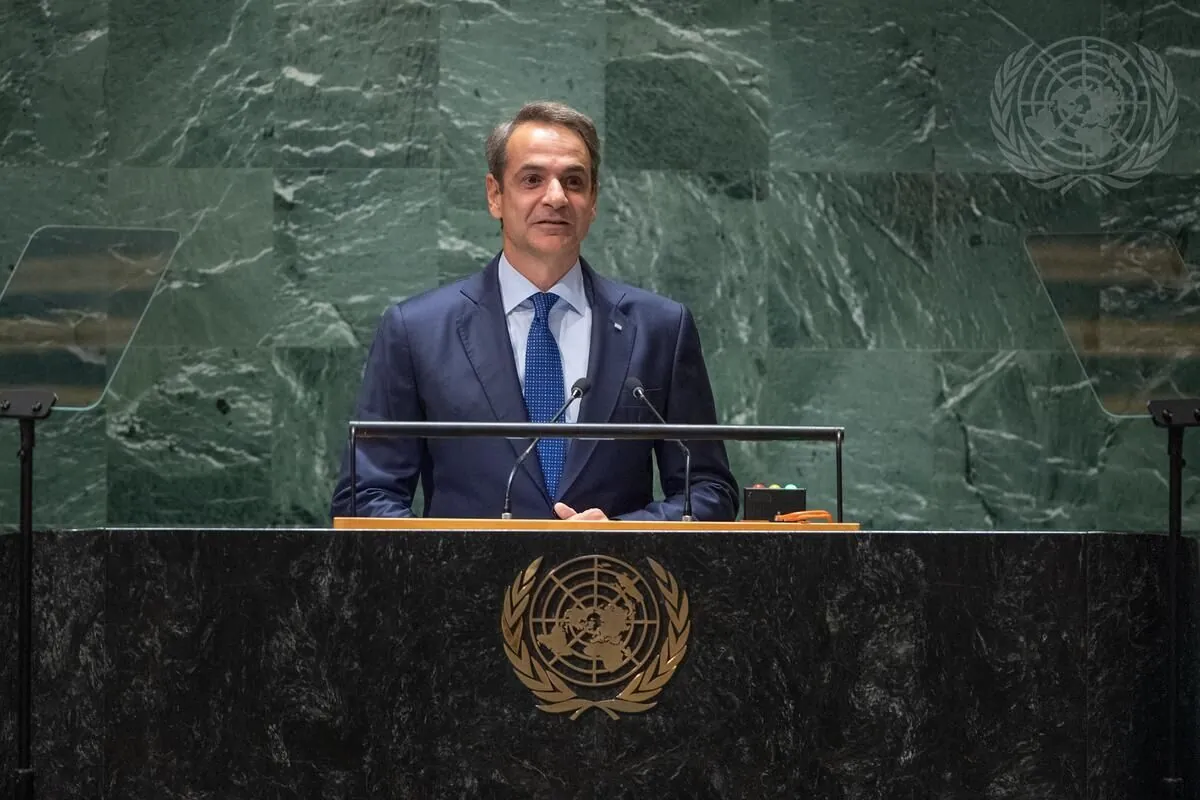Kyriakos Mitsotakis, the Greek Prime Minister, has outlined a series of economic measures aimed at supporting citizens facing high living costs while maintaining fiscal responsibility. The announcement came during his annual economic policy address at the Thessaloniki International Fair, a commercial exhibition with a history dating back to 1926.
Greece, which joined the European Union in 1981, is still in the process of recovery from a severe debt crisis that began in late 2009. This economic downturn, triggered by the Great Recession, resulted in a 25% reduction in the country's GDP between 2009 and 2018. During this period, Greece received three international bailouts and implemented strict austerity measures, including cuts to wages and pensions.
However, the nation has been experiencing robust economic growth in recent years, with a projected increase of 2.5% in 2024. Mitsotakis emphasized the need to distribute this growth equitably, stating, "Greece has changed, with strong economic growth that should be distributed in a balanced way, and be reflected in pensions and wages."
The proposed measures, set to take effect in 2025, include:
- Pension increases of up to 2.5%
- Gradual minimum wage increase to 950 euros by 2027
- Reduction of social security contributions by 1 percentage point
- Phased elimination of a special levy on self-employed individuals
- Distribution of 243 million euros from an energy company windfall tax to vulnerable citizens
These initiatives aim to address several challenges facing Greece, including its aging population. The country has one of the highest percentages of elderly residents in the European Union, coupled with a declining birthrate. To combat this demographic trend, Mitsotakis pledged to extend housing support and provide benefits and tax exemptions for young parents.
The government also plans to allocate 1.6 billion euros to defense spending in 2025, reflecting Greece's position as one of the highest defense spenders in NATO relative to GDP. Additionally, measures to support farmers affected by climate change and reduce property taxes for homeowners who insure against natural disasters were announced, acknowledging the increased frequency of wildfires in the country.
"I don't have with me today a bag with reckless handouts but only suggestions for useful and effective choices."
This statement underscores the government's commitment to maintaining fiscal prudence while addressing the needs of its citizens. The New Democracy party, which Mitsotakis has led since 2016, came to power in 2019 and secured a second term in 2023. However, recent opinion polls suggest a decline in the party's popularity, possibly due to ongoing cost of living concerns and the impact of natural disasters.
The proposed economic package is estimated to cost approximately 3 billion euros in 2025, representing about 1.5% of Greece's GDP. As the country continues its economic recovery, balancing growth with fiscal responsibility remains a key challenge for the government.
